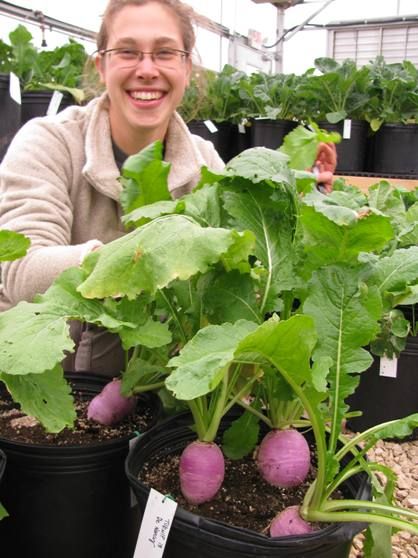
“Would you just look, showing off in public like that,” the carrot gossiped about the Brandywine tomato. “It’s literally falling out of its cage!”
“The very idea,” the turnip agreed. “Just look at how people fawn all over it when it’s ripe. It’s embarrassing.”
Here at Seed Savers, biennials don’t take a back seat to the glamour vegetables, all seeds are treated equally. It’s just that certain kinds of vegetables present unique seed saving challenges, such as biennials.
Biennials, such as carrots and turnips, need two growing seasons to complete their life-cycle. Most never make it to their second growing season because we’d much rather have them on our dinner plates than bolting in the garden.
Carrots, celery, parsnip, chicory, some radishes, beets, chard, leeks, seed-producing onions, some turnips, kale, collards, some cabbages and mustards, kohlrabi, broccoli, and cauliflower, are all biennials.
Most biennials are wind/insect pollinated which means (challenge 1) they have to be grown in isolation so that they do not cross-pollinate. Preventing cross-pollination ensures that the seed we are saving is true-to-type and maintains the traits from the parent plant. We accomplish this many ways here. One method is to grow plants far enough apart so wind-borne pollen cannot travel between them.
However, some biennials have weedy cousins (challenge 2). Because of this, even if we isolated our cultivated varieties by distance only, weeds in a nearby pasture or ditch could cross-pollinate with our vegetable varieties. Here in Iowa, wild parsnip, cow parsnip, and angelica commonly grow along roads and in pastures, which could cross-pollinate with our nearly 50 varieties of cultivated parsnip. Another potential for seed contamination is garden carrots mixing with their wild, royal cousin, Queen Anne’s lace. To help with this, we use yet another way of growing plants in isolation – tents. Isolation tents allow us to keep visiting pollinators away from the varieties we are growing, while introduced pollinators, such as honeybees, can do their pollination work inside the tent.
Because flowering doesn’t happen until the second growing season, by the time biennials start pollinating, they have already been on quite a journey. This is mostly due to (challenge 3) our cold winters in Northeast Iowa. In warmer climates, a gardener can leave their biennials in the ground all winter. This is not the case at Heritage Farm. Here, biennials are started by seed in our greenhouse and then transplanted into the field. A general rule of thumb around here is that biennials need to be mature by the time winter rolls around. For example, a carrot would be started in late July.
After all this work, we get to what’s happening on the farm this week – getting our biennials ready for winter. Most biennials need a period of vernalization, or a cold period before flowering. So, we’re digging up the biennials and preparing them for storage in our root cellar. Ideal storage for most biennials means keeping the temperature as close to freezing with high humidity. This means cutting the top off the plant one inch above the roots and storing what’s left in potting soil. Home gardeners could use a variety of mediums for storage: sand, burlap, leaves, or potting soil. Usually, we put as many plants together into one pot as we can fit.
But don’t worry, it’s worth it. Finally, your biennials will be able to hold their own in the garden, and say to that glamorous tomato, “See, I’m worth saving too.”
Note from a seed saver: if you want to save biennial seed check out the specifics for each plant. With so many vegetables to choose from growing out there in gardens, seed saving, storage, and planting techniques vary.
Fine Gardening Recommended Products
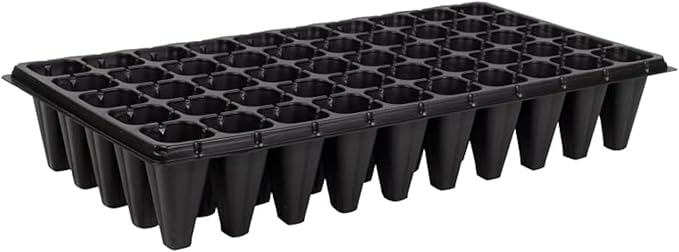
Nothers RooTrimmer 50 Cell, 10pcs
Fine Gardening receives a commission for items purchased through links on this site, including Amazon Associates and other affiliate advertising programs.
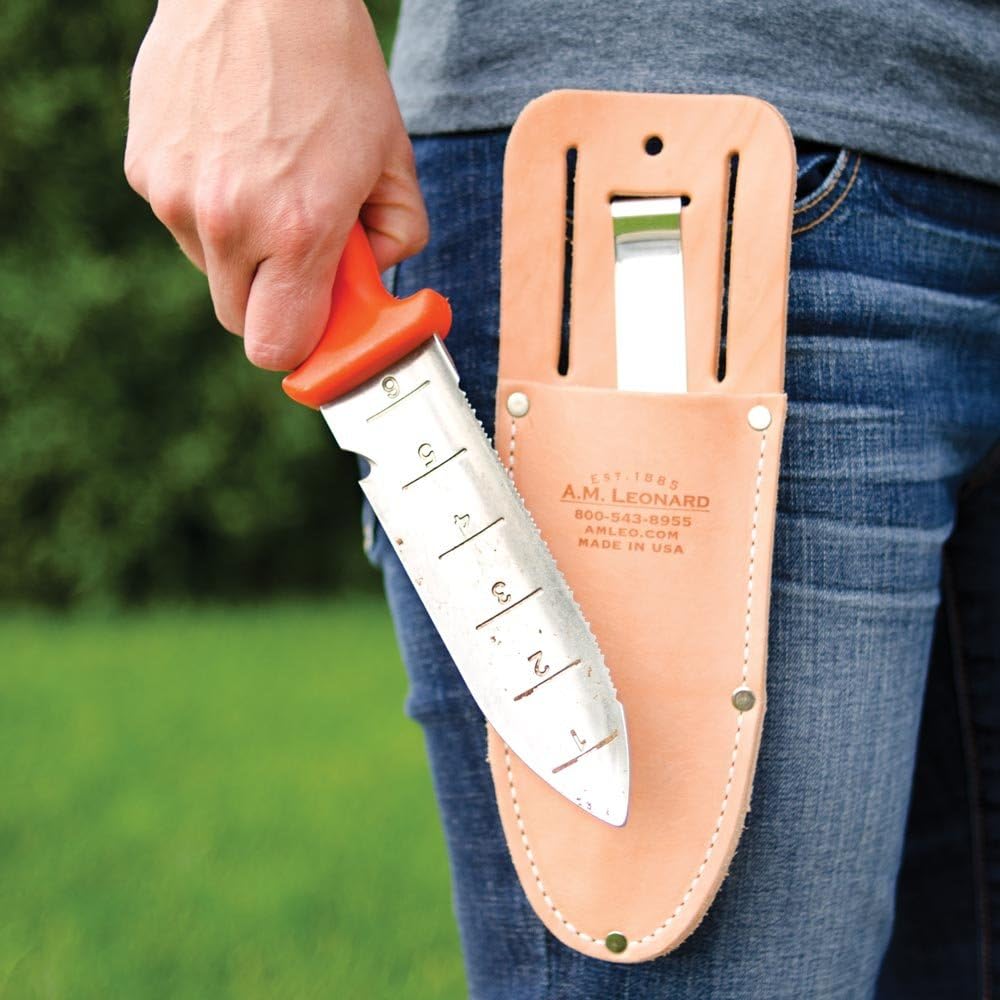
A.M. Leonard Deluxe Soil Knife & Leather Sheath Combo
Fine Gardening receives a commission for items purchased through links on this site, including Amazon Associates and other affiliate advertising programs.
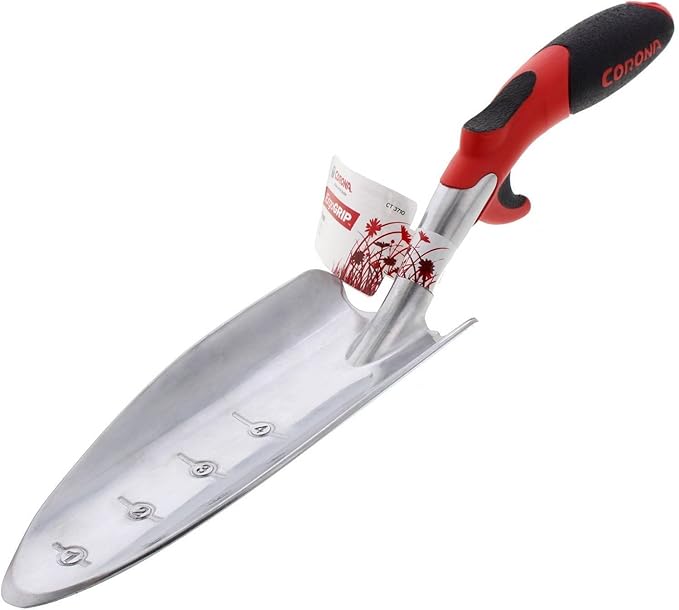
Corona E-Grip Trowel
Fine Gardening receives a commission for items purchased through links on this site, including Amazon Associates and other affiliate advertising programs.

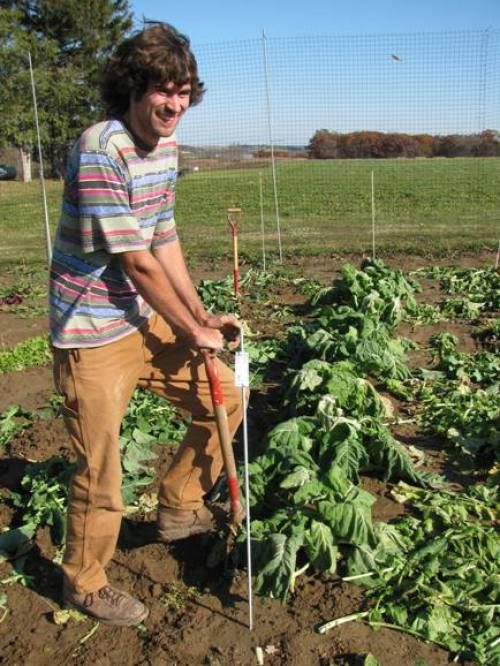
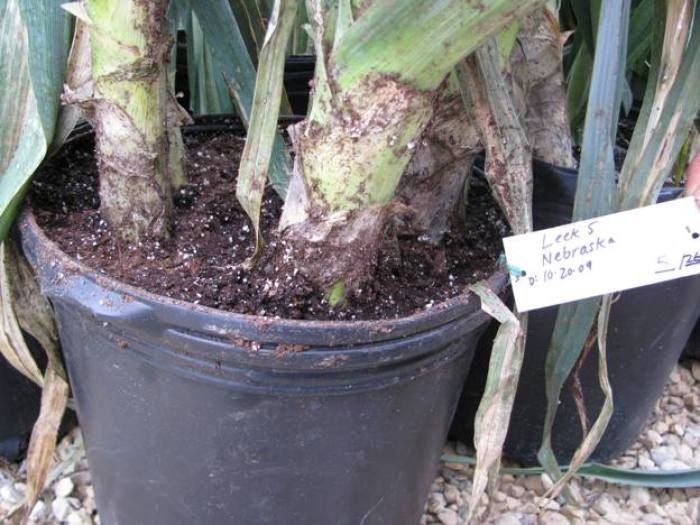

















Comments
Log in or create an account to post a comment.
Sign up Log in